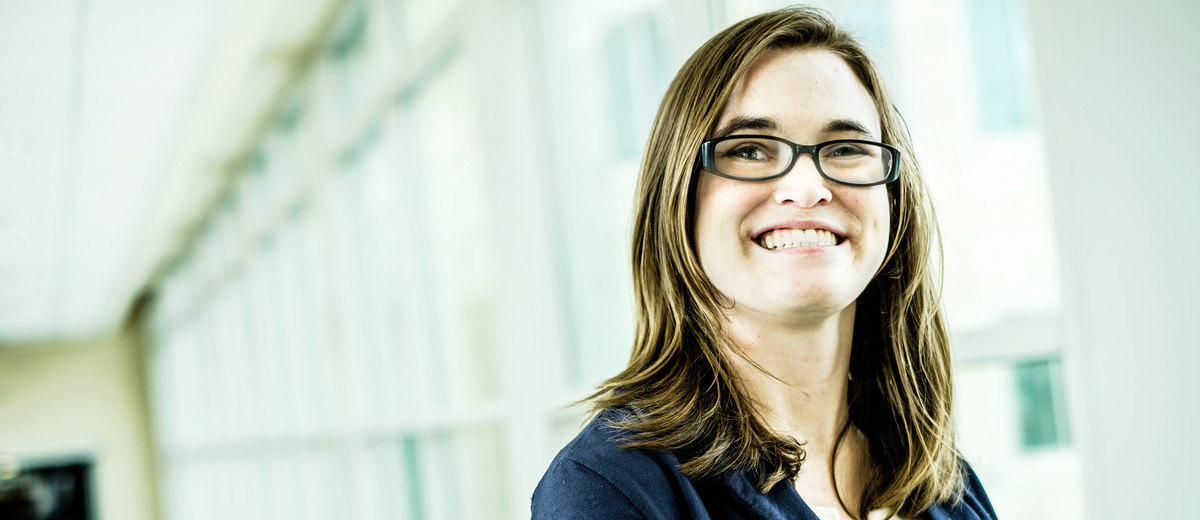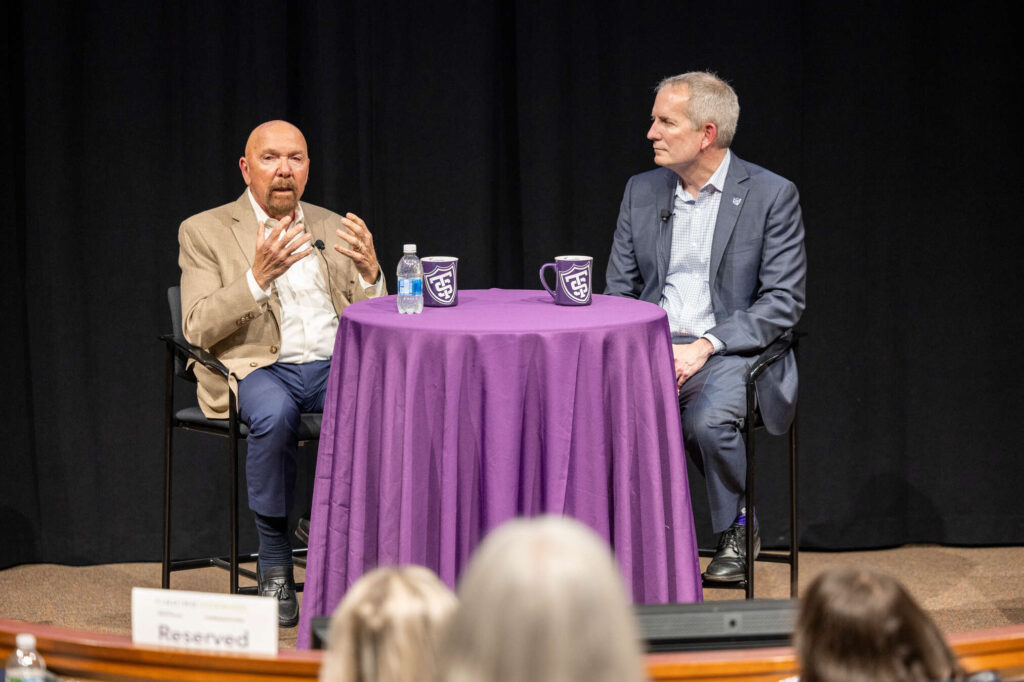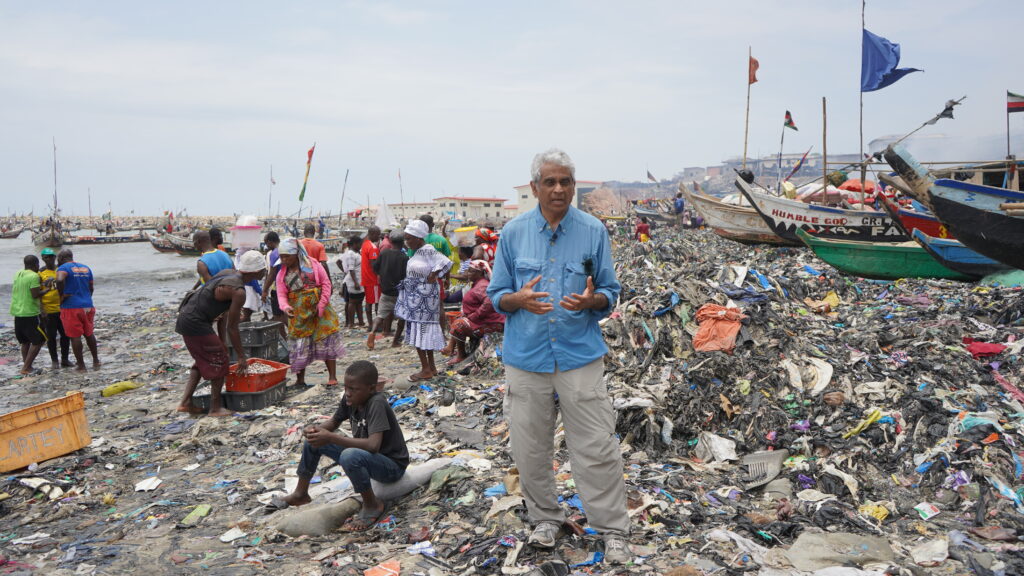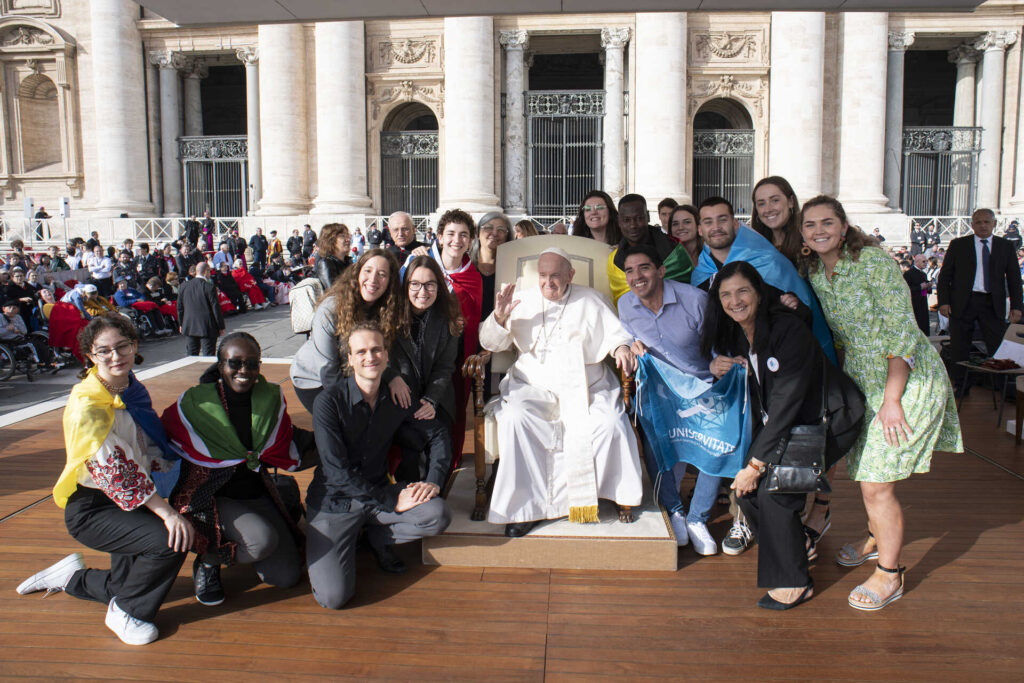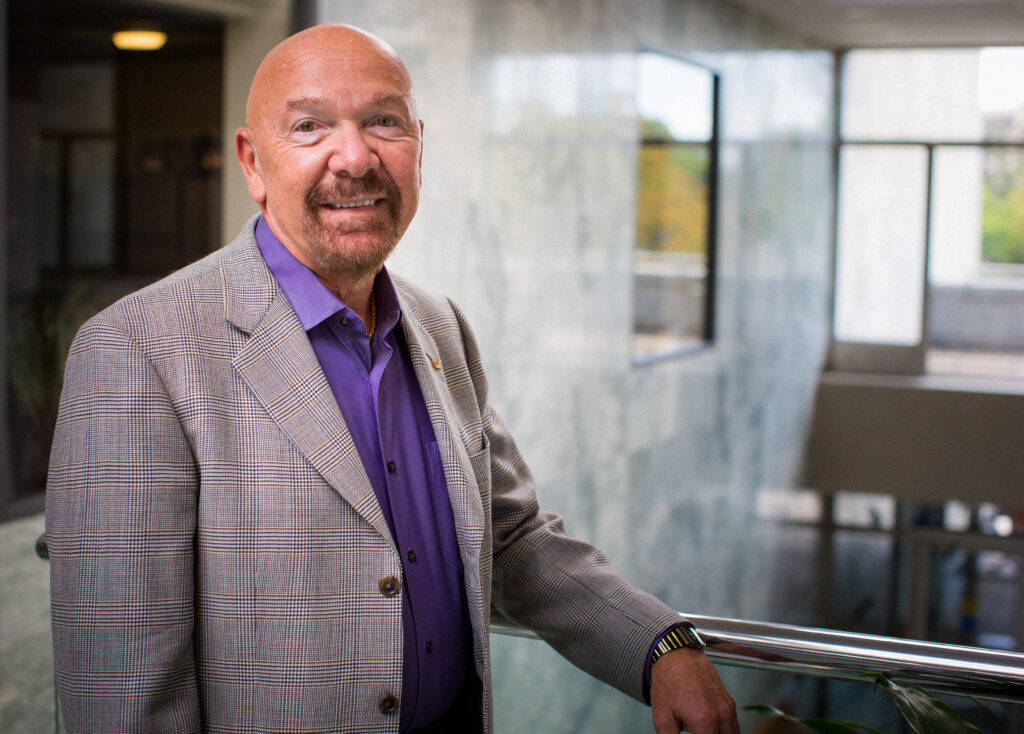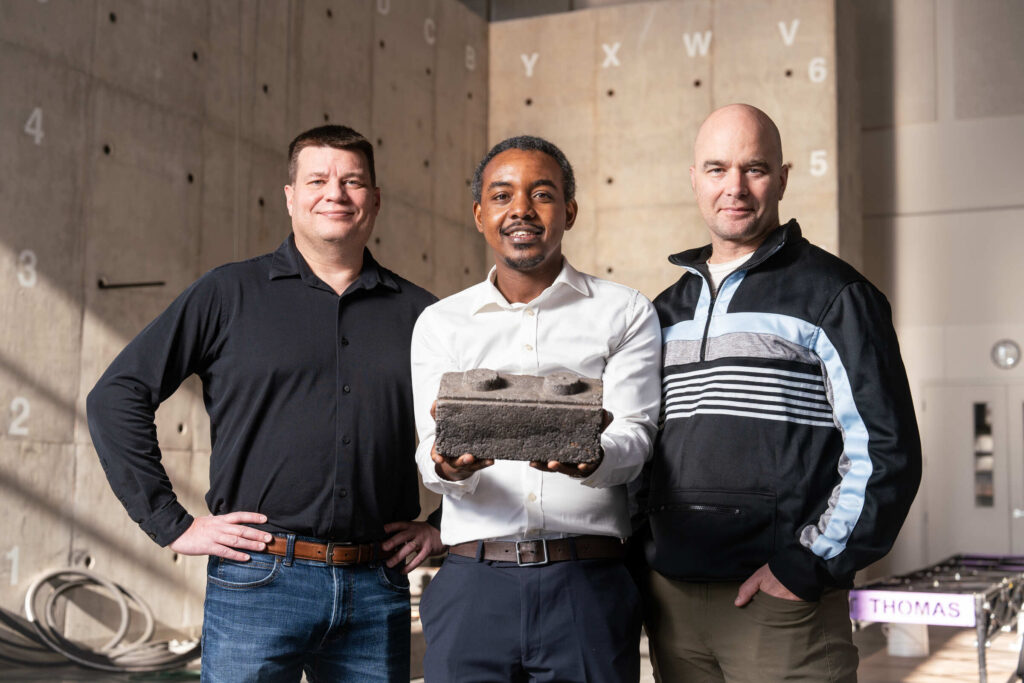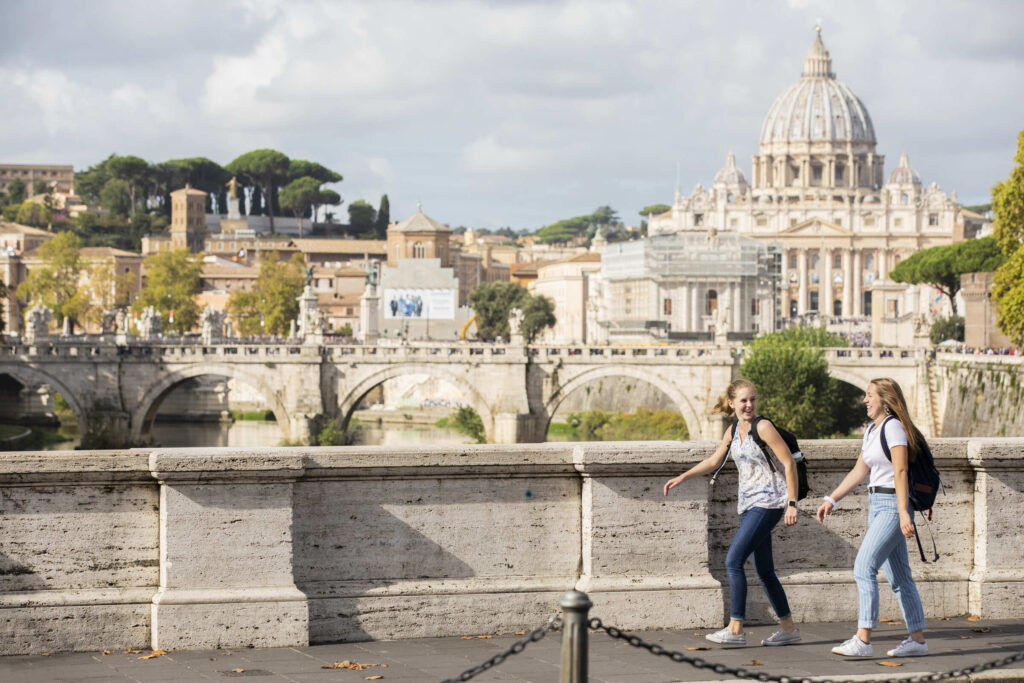“It was a very impromptu decision,” admitted first-year law student Danielle Liebl when asked why she decided to attend the St. Thomas School of Law.
Of course, when Michelle Obama’s chief of staff says you have a possible future in the law, it’s probably something you should at least consider.
Liebl, the founder of DIFFERbilities Experience, a nonprofit that promotes social inclusion and advocacy for youth with disabilities, has spoken at the White House about what it was like growing up as someone who was labeled as “disabled.” She has cerebral palsy, and some of the hardships she faced in high school, such as being told that she was "too dumb" and wouldn’t be able to attend a four-year university, spurred her to start DIFFERbilities Experience.
With a background in law, she hopes to be able to continue her advocacy work from a different angle.
From a university club ...
DIFFERbilities Experience traces its roots back to Liebl’s time as an undergraduate at the College of Saint Benedict. Liebl worked on the Spread the Word to End the Word campaign there, which educates people on why the word “retarded” is derisive and encourages them to use more accepting language.
After working on the campaign, Liebl and a classmate discussed how difficult it can be for people to understand how individuals with disabilities are impacted by them.
“I think people just assume [the struggles are] medical,” Liebl said. “But I don’t think people always realize the social struggles you face because of other people’s misperceptions about you.”
With that in mind, she and her classmate started a club, Students for the Advancement of People with DIFFERbilities.
The term “DIFFERbilities” sprang from a conversation Liebl had with Tim Shriver, son of Special Olympics founder and a current chairman of its board.
“We were talking about how we don’t like the word ‘disabilities,’” Liebl said. “It has a negative connotation to it. And he just said, ‘We’re going to call it “DIFFERbilities” because everyone has a different ability.’ If you think about it, everyone has a disability. I fell in love with the word.”
The club started small, but grew as it began inclusive programs, including a partnership with Special Olympics that resulted in a basketball team. Such programs, called unified teams, brought both disabled and non-disabled people together to learn from one another. By the time Liebl reached her senior year, the club had close to 200 members.
During that time, Liebl was nominated for the 2013 Peace First Prize, a national-level competition that recognizes peacemakers who are between the ages of 8-22 and provides them with a fellowship to promote a project. After six months of interviews – the last with Chelsea Clinton – Liebl was one of the first winners of the Peace First Prize.
Prize in hand, Liebl took the club and transformed it into a nonprofit – DIFFERbilities Experience.
... to advocacy on a national level
DIFFERbilities Experience offers a range of programs. It continues to partner with Special Olympics, including on Unified Sports. Liebl said some of the future work will provide leadership skills to youths with disabilities.
“Youth will be able to learn how to be an advocate for themselves in daily life, whether that be in a college advocating for an extension on a paper, or in a high school advocating for an [Individualized Education Program] goal or cause you really believe in,” Liebl said. (Every special-needs student is required by law to receive an Individualized Education Program.) “It’s really centered on advocating for inclusion and learning those advocacy skills in an inclusive environment.”
Besides all the paperwork, Liebl said one of the differences between running a nonprofit vs. a club is having a board of directors to support the organization's mission.
“We’re really lucky because we have … a team that has the interests of the organization at the heart, and it’s nice to have more than two minds when you’re dealing with programming,” Liebl said.
One DIFFERbilities Experience member board is Kari Jo Faulhaber ’10. Faulhaber spearheaded the Spread the Word to End the Word campaign at St. Thomas – which was how she met Liebl, who visited campus to talk about her experiences.
“She’s super inspiring,” Faulhaber said. “She’s overcome so much and is such a great leader. She’s one of the smartest people I know.”
Because of her close relationship with Special Olympics, they often recommend her as a speaker. That's how she wound up at the White House when President Barack Obama signed Rosa’s Law, which removed the term “mentally retarded” from federal health, education and labor policy; as a speaker for the celebration when the Obamas served as the honorary co-chairs for the Special Olympics World Games; and also as a speaker for We Day at the Xcel Center in 2015, which brought together 18,000 youth “world-changers” who had to earn their way to the event through global and local action.
Liebl was humble about all of her speaking engagements.
“I felt very unworthy to be on that stage with such accomplished people,” she said of We Day.
She described speaking at the White House as a “once-in-a-lifetime experience. I think if you told me that after I would be speaking Katy Perry would be performing, I wouldn’t have ever believed you. That’s an experience.”
A new approach
While Liebl has already accomplished so much in her advocacy efforts, she said she felt compelled to keep doing more. When she was advised to go to law school, she took the idea seriously and dove right in.
“I think there’s two ways of approaching inclusion,” Liebl said. “One is definitely the social aspect, which is what DIFFERbilities is trying to do. And also there needs to be change in the system. It’s gotten a lot better, but it’s by no means perfect.”
She said St. Thomas’ mission to make an impact for the greater good is what specifically drew her to its law school.
“Looking at law schools, a lot of them are competition focused,” Liebl said. “There’s still competition at St. Thomas in the law program, but what drew me there was that it’s about helping the greater good.”
(Faulhaber added that there’s been some gentle ribbing of her Saint Ben’s/Saint John’s compatriot: “When she told me she was applying at grad school at St. Thomas, she said, ‘I know, I know, but it’s one of the best schools.’ [I said,] ‘Can I write down that you just said that?’ I gave her a lot of grief for wearing purple, but I think she’s fallen in love with the school.”)
Liebl said, so far, law school has helped her realize how complicated the law can be and introduced her to a new mindset; however, she said she’ll be glad to be able to advocate for those who might be “overwhelmed” by the web of laws surrounding those with special needs.
She’s turned over the reins as executive director of DIFFERbilities Experience so she can focus on law school, but remains on as president. She emphasized the daily changes she can see in her work, such as DIFFERbilities Experience participants hanging out together outside of the program, remain the most meaningful to her.
Her long-term vision for DIFFERbilities Experience? That a club like DIFFERbilities Experience will be a normal part of every school across the nation.
"It's just a staple of the school. We can expect it to be there," Liebl said. "We hope, though, that one day ... that our organization doesn't exist, because that means it's not an issue anymore. That would be awesome."
